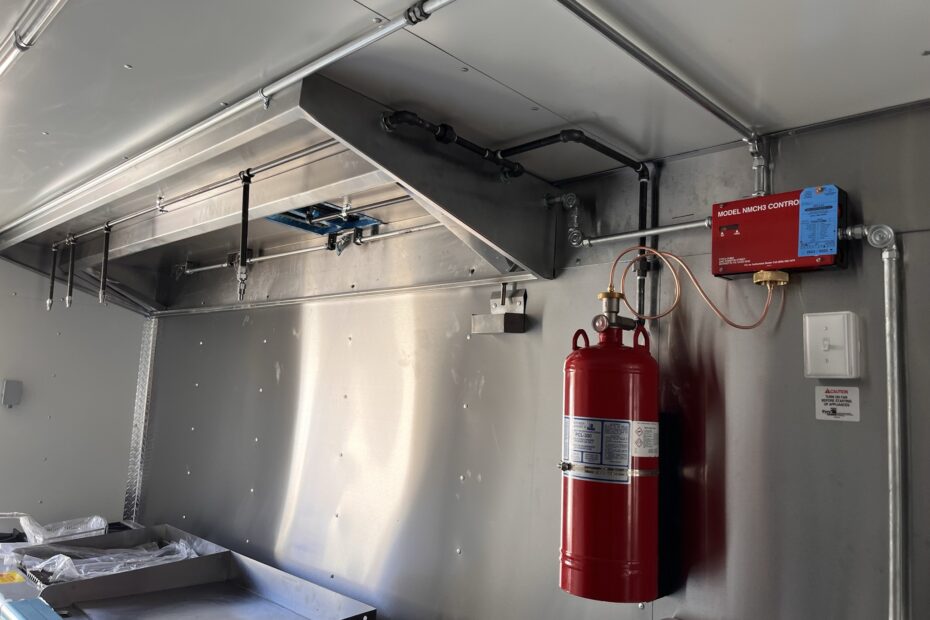Cooking creates several effluents, including smoke, oil, and moisture. Restaurants typically have industrial kitchen exhaust systems installed to lift effluents upward and out of the building. On the other hand, as time passes, oil and other particles accumulate on the interior of the hood, throughout the ducting, and on the exhaust fan. The accumulation is a significant risk for fire if it is not cleaned frequently by the standards. According to the findings of the National Fire Protection Association (NFPA), the accumulation of grease in kitchen exhaust systems is responsible for roughly one-third of all fires that occur in restaurants.
Other Dangers Associated with Ignoring Your Kitchen Exhaust System
Even while reducing the possibility of a fire should be the top concern, a dirty hood can also contribute to a decrease in cleanliness in the kitchen. It’s possible for surfaces and pieces of equipment to become covered with grease and other debris over time, which can foster the growth of germs and other potentially hazardous microbes. This may result in a stench that turns potential customers away, but more critically, it may lead to foodborne disease and other health issues.
In addition, unclean hoods, ducts, and fans cause kitchen exhaust systems to work harder and less effectively than they otherwise would. The heat generated by the cooking equipment is trapped by an inefficient system, making the working conditions in the restaurant unpleasant for the employees. This can also result in higher utility bills, a shorter lifespan for the equipment, more excellent maintenance and repair expenses, and a more frequent need for these services.
How to Care for and Clean Your Vent Hood in the Kitchen
It is essential to get your kitchen hood and exhaust system inspected and cleaned regularly to keep them in good condition. The amount of food being prepared, and the variety of food being prepared are factors that will determine how frequently cleaning has to be done. The NFPA 96 standard is the most prevalent and often used fire code standard in business. Compliance with this standard is required for cleaning activities. It is suggested that you employ a professional to clean your kitchen exhaust system to guarantee that it is cleaned to the proper regulatory requirements and to avoid harmful activities. This is because NFPA 96 establishes stringent criteria for cleaning kitchen exhaust systems.
For a result that is comprehensive and in accordance with applicable regulations, it is necessary to clean the hood of a commercial kitchen using the appropriate apparatus and cleaning materials. In addition, preparation and care are required within the kitchen to preserve the integrity of the cooking equipment and guarantee that food is not contaminated. Cleaning your complete kitchen exhaust system in a safe and effective way requires the specialized equipment and knowledge that only a professional cleaning company can provide.
In addition to doing routine cleaning, it is essential to conduct regular checks of your hood and exhaust system for any indications of potential problems. To guarantee that the system will continue to operate as intended, any defects or areas of damage that are discovered must be fixed as quickly as is humanly possible.
It is essential to clean the exhaust system of your industrial kitchen regularly to keep the cooking atmosphere safe and healthy. A filthy system may lead to various difficulties, including increased danger of fire, poor air quality and a work environment, and a reduction in general kitchen cleanliness. These concerns can all be avoided by keeping the system clean. If you regularly give your range hood the attention and cleaning it needs, you can keep your kitchen clean, tidy, and free from potential hazards.
